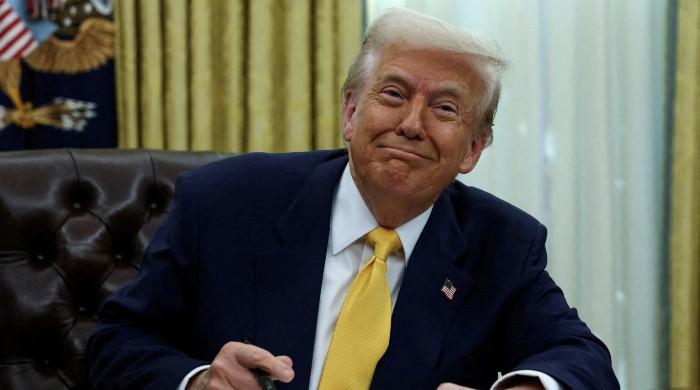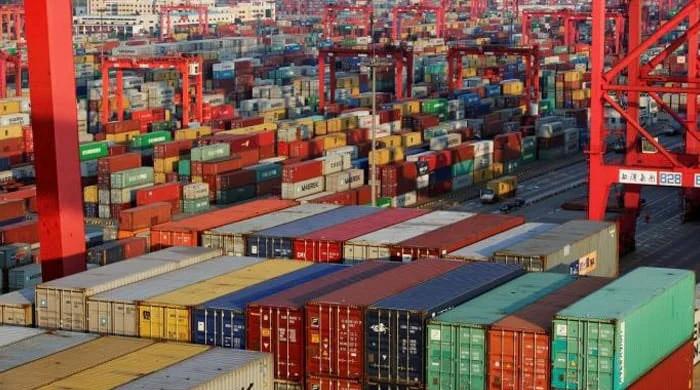US agrees to help Pakistan negotiate deal with IMF: report
Pakistan sought help from US as latter has considerable influence over IMF’s decision-making
June 20, 2022

- Pakistan seeks help from US as latter has considerable influence over IMF’s decision-making.
- Per reports, Pakistan has not yet received first draft of MEFP from IMF.
- Fund still has reservations over Rs9.5tr expenditures projected by authorities for FY23.
In line with Pakistan’s request regarding assistance from the United States for the revival of the International Monetary Fund (IMF) programme, the latter has agreed to help Islamabad negotiate a deal with the global lender, Daily Dawn reported, citing diplomatic sources.
Earlier, a top official of the Finance Division told The News that Finance Minister Miftah Ismail and State Minister for Finance Aisha Ghaus Pasha held a meeting with US ambassador last week.
However, the source added that it would not be sufficient as Islamabad would have to establish “contacts” with the US Treasury high-ups to muster up the required support after evolving a consensus on the framework on the basis of which both sides could make progress for signing a memorandum of financial and economic policies (MEFP) document.
MEEP is a prerequisite for moving towards the signing of the staff-level agreement as it provides the basis of a framework on which both sides evolve consensus.
“Without broader agreement on the basis of framework, no one could help Pakistan,” the official had said.
Read more: Breakthrough expected in Pakistan-IMF talks 'in 72 hours'
As per the publication's report, Pakistan sought help from the US as the global lender has yet to agree to a staff-level pact despite the government having taken many difficult steps and Washington has a considerable influence over the IMF’s decision-making as the largest shareholder.
Another report published in Daily Dawn stated Pakistan has not yet received the first draft of MEFP from the IMF as targeted earlier because certain matters remained unsettled. “We are working very closely with the IMF and will soon reach some conclusion,” a top finance ministry official told the publication.
The authorities in the finance ministry were expected to conclude the staff-level agreement by Sunday (June 19) on the basis of revenue and expenditure measures that could deliver next year’s primary budget (the difference between revenues and expenditures, excluding interest payment) in Rs152 billion surplus.
Read more: IMF says it 'did not ask Pakistan to renegotiate CPEC IPP contracts'
The government took the toughest measures to end fuel subsidies and hiked the POL [petrol, oil, lubricants] prices up to unprecedented levels in order to convince the Fund to revive the programme. However, the IMF is still insisting on doing more knowingly that Islamabad has turned into a ‘desperate borrower’ mainly owing to the depletion of foreign currency reserves.
The Fund still has reservations over Rs9.5 trillion expenditures projected by the authorities for the next fiscal year. The revenue measures in the budget, according to IMF estimates, are also insufficient to deliver slightly over Rs7 trillion target.











